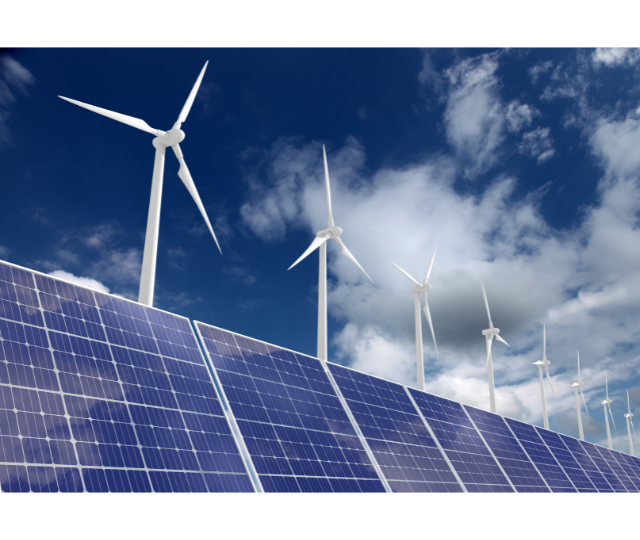
As energy prices continue to fluctuate and environmental concerns rise, the need for efficient, sustainable, and affordable heating solutions has become increasingly important—particularly for households in Wales. While free boiler grants have been a popular point of entry for many residents looking to cut energy costs, these aren’t the only upgrades available. Thanks to schemes such as ECO4 and the Great British Insulation Scheme (GBIS), Welsh homeowners and tenants can access a range of free or subsidised energy-saving measures, including heat pumps, insulation, and solar panels.
This article dives into the key energy upgrades available in Wales beyond just boilers, how they work, and who qualifies for them.
1. Loft Insulation: Retain the Heat, Reduce the Bills
Loft insulation is one of the most straightforward and cost-effective ways to save energy. It works by creating a barrier in the roof space, reducing heat loss by up to 25%.
Why it matters:
- Heat rises and escapes through the roof without adequate insulation.
- It requires little maintenance and can last up to 40 years.
- A well-insulated loft can save homeowners up to £300 per year on energy bills.
Eligibility:
Under the GBIS, eligible households in Wales—especially those in lower Council Tax bands or on certain benefits—can receive loft insulation free of charge.
🔗 Learn more about Loft Insulation Grants
2. Cavity Wall Insulation: Improve Thermal Efficiency
Many properties in Wales were built with cavity walls—gaps between the inner and outer wall layers. If these cavities are left uninsulated, heat loss can account for up to 35% of a home’s energy waste.
How it works:
Cavity wall insulation involves injecting insulating material into the gap between the walls. The result is a warmer home that requires less heating.
Benefits:
- Reduces energy bills significantly.
- Makes the property more energy-efficient (increasing the EPC rating).
- Can help reduce condensation issues on internal walls.
Accessing the grant:
Through government-backed initiatives like ECO4, many Welsh households can receive this service at no cost, provided they meet eligibility criteria.
🔗 Find out if you qualify for Cavity Wall Insulation
3. Heat Pumps: Sustainable Heating for the Future
Heat pumps are gaining popularity as a low-carbon alternative to traditional heating systems. They work by transferring heat from the air or ground outside into your home, even in cold weather.
Types of heat pumps:
- Air Source Heat Pumps (ASHPs): Extract heat from outside air.
- Ground Source Heat Pumps (GSHPs): Use pipes buried in the ground.
Advantages:
- Produce 3-4 times more heat energy than the electrical energy they consume.
- Can lower carbon emissions and reliance on fossil fuels.
- Ideal for homes looking to move away from gas-based heating.
Funding and grants:
Under the ECO4 scheme, heat pumps may be installed for free or heavily subsidised, particularly in off-gas areas and for those meeting specific household criteria.
🔗 Explore ECO4 energy efficiency measures through EDF
4. Solar Panels: Harnessing Renewable Power
Solar energy is a long-term solution to both energy cost and carbon footprint reduction. Although not every home is suitable due to factors like roof direction and shading, many properties across Wales are eligible for free solar panels under the ECO4 scheme.
How they help:
- Convert sunlight into electricity.
- Lower reliance on grid electricity.
- Reduce energy bills substantially.
Important note:
- Solar systems under ECO4 are usually paired with battery storage for efficiency.
- Households must meet certain criteria, including low-income eligibility or specific health conditions.
Combined benefits:
Homes that receive solar panels often also benefit from insulation and heating upgrades, creating a whole-house retrofit effect.
5. The ECO4 Scheme: A Comprehensive Support Framework
The ECO4 (Energy Company Obligation) scheme is the latest phase of a government initiative that requires large energy suppliers to fund energy-saving improvements in homes across the UK, including Wales.
Key Features:
- Targets low-income, vulnerable, or fuel-poor households.
- Available to both homeowners and private tenants (with landlord permission).
- Covers a wide array of energy upgrades including:
- First-time central heating systems
- Electric storage heaters
- Insulation and ventilation
- Solar PV and battery storage
🔗 Visit EDF’s ECO4 resource for more information
6. GBIS: Widening Access to Insulation
The Great British Insulation Scheme (GBIS) focuses specifically on insulating homes with low energy efficiency. It is ideal for properties that do not qualify for ECO4 but still require assistance.
Who qualifies:
- Households in Council Tax bands A-D in Wales.
- Homes with low EPC ratings (D or below).
- Occupants on low income or specific health conditions.
What’s covered:
- Loft insulation
- Cavity wall insulation
- Solid wall insulation (in some cases)
🔗 Check if you qualify under GBIS
7. Integrating Multiple Measures for Maximum Benefit
One of the most powerful aspects of these schemes is their ability to combine several upgrades to maximise home efficiency. For example, a household might receive:
- Cavity wall and loft insulation (to retain heat),
- A heat pump (to produce efficient heating),
- Solar panels (to generate electricity),
- Ventilation upgrades (to ensure air quality).
This whole-house approach not only improves comfort but also significantly reduces energy consumption and long-term costs.
8. How to Get Started
If you’re considering applying for any of these free energy efficiency measures:
- Check your EPC rating (Energy Performance Certificate).
- Assess your eligibility (benefits, income, health conditions).
- Submit an application through a certified provider.
🔗 Check eligibility for free boilers in Wales
Many service providers conduct a free home survey to confirm which measures are best suited to your home and whether you qualify for multiple upgrades.
Conclusion
Free energy upgrades in Wales go far beyond boilers. With schemes like ECO4 and GBIS, households can take advantage of insulation, solar panels, and modern heating systems such as heat pumps. These not only make homes warmer and more comfortable but also drastically reduce carbon emissions and energy bills.
By tapping into these opportunities, Welsh residents can future-proof their homes—creating a more sustainable, affordable, and eco-friendly way of living.


















